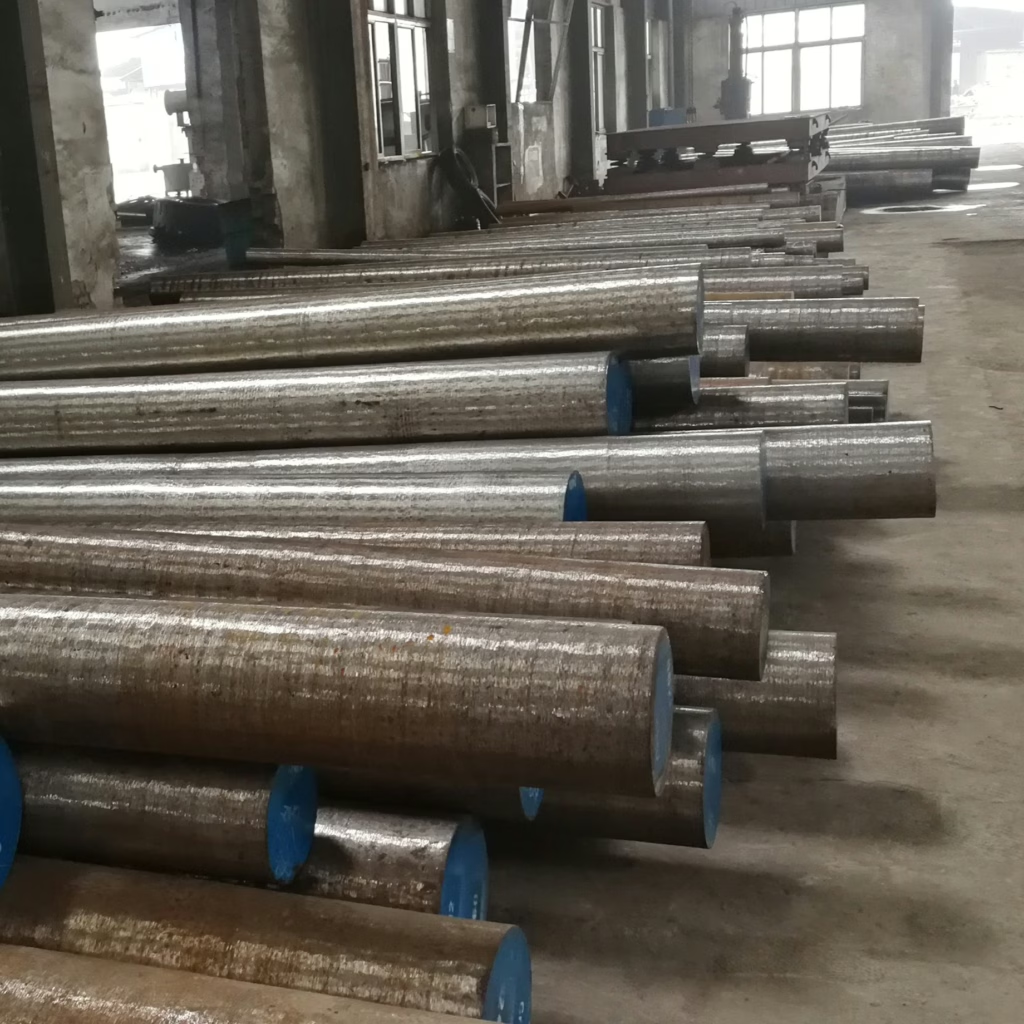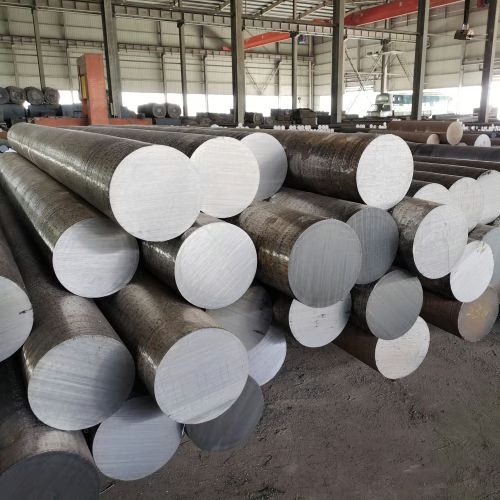
3Cr2Mo tool steel
AOBO STEEL – Trusted Global Tool Steel Supplier
3Cr2Mo is a plastic mold steel under the Chinese GB/T system, and its equivalent steel is ASTM/AISI P20 steel in the United States and DIN 1.2311 in Germany. Its primary application is in mold manufacturing, particularly for plastic injection molds and die casting molds that handle lower-melting-point alloys.
1. Chemical Composition of 3Cr2Mo Steel(GB / T 1299—2000)
| C | Si | Mn | Cr | Mo | P | S |
| 0.28~0.40 | 0.20~0.80 | 0.60~1.00 | 1.40~2.00 | 0.30~0.55 | ≤0.030 | ≤0.030 |
2. Physical Properties of 3Cr2Mo Steel
2.1 Critical Temperatures of 3Cr2Mo Steel
| Critical Point | Ac₁ | Ac₃ | Ar₁ | Ar₃ | Ms | Mf |
| Temperature (Approx.) /°C | 770 | 825 | 640 | 760 | 335 | 180 |
2.2 Linear Expansion Coefficient of 3Cr2Mo Steel
| Temperature/°C | 18 ~ 100 | 18 ~ 200 | 18 ~ 300 | 18 ~ 400 | 18 ~ 500 | 18 ~ 600 | 18 ~ 700 |
| Linear Expansion Coefficient α / x 10⁻⁶ °C⁻¹ | 11.90 | 12.20 | 12.50 | 12.81 | 13.11 | 13.41 | 13.71 |
2.3 Thermal Conductivity of 3Cr2Mo Steel
| Temperature/°C | 20 | 100 | 200 | 300 | 400 |
| Thermal Conductivity λ / [W/(m·K)] | 36.0 | 33.4 | 31.4 | 30.1 | 29.3 |
2.4 Other Physical Properties of 3Cr2Mo Steel
| Density / (g/cm³) | Poisson’s Ratio μ | Elastic Modulus (Room Temp.) E/MPa | Shear Modulus (Room Temp.) G/MPa |
| 7.81 | 0.288 | 212000 | 825000 |

Please fill out the following contact form to get the best quotation for 3Cr2Mo/P20 steel.
3. Hot Forging Process Specification for 3Cr2Mo Steel
| Item | Heating Temperature/°C | Initial Forging Temperature/°C | Final Forging Temperature/°C | Cooling |
| Steel Ingot | 1180 ~ 1200 | 1130 ~ 1150 | ≥850 | Pit cooling |
| Steel Billet | 1120 ~ 1160 | 1070 ~ 1100 | ≥850 | Sand cooling or slow cooling |
4. Heat Treatment of 3Cr2Mo Steel
4.1 Preheating
| Preliminary Heat Treatment Plan | Heating Temperature/°C | Isothermal Temperature | Hardness HBW |
| Isothermal Annealing | 840 ~ 860°C × 2h | 710 ~ 730°C × 4h, furnace cool to below 500°C then air cool | ≤229 |
| High-Temperature Tempering | 720 ~ 740°C × 2h | Furnace cool to below 500°C then air cool | ≤229 |
4.2 Quenching and Tempering Process
| Quenching Specification | Tempering Specification | ||||
| Quenching Temp./°C | Cooling Method | Hardness HRC | Tempering Temp./°C | Cooling Method | Hardness HRC |
| 850 ~ 880 | Oil cooling | 50 ~ 52 | 580 ~ 640 | Air cooling | 28 ~ 36 |
Note: 3Cr2Mo steel can be carburized, nitrided, carbonitrided, or ion-nitrided before polishing. The surface roughness value Ra can be reduced to 0.03 μm. The surface hardness of the mold can be further improved, and the service life of the mold can be extended.
5. Mechanical Properties
3Cr2Mo pre-hardened steel has high hardenability, which allows steel with larger cross-sectional dimensions to obtain a more uniform hardness, and its comprehensive mechanical properties are good. This steel has excellent polishing performance, and the surface roughness of the molds made from it is low. The steel is pre-hardened at the factory to a hardness of 28 ~ 35 HRC. After cold working into a mold, it can be used directly, avoiding the deformation of the mold caused by heat treatment. After re-forging, it is re-heat-treated according to the performance requirements of the mold.
Effect of Tempering Temperature on the Mechanical Properties of 3Cr2Mo Steel
| Tempering Temp./°C | Hardness HRC | Rₘ/MPa | Rₑₗ/MPa | A(%) | Z(%) | aₖ/(J/cm²) |
| 450 | 42 | — | — | — | — | 50 |
| 500 | 41 | 1350 | 1200 | 11 | 52 | 60 |
| 550 | 38 | 1250 | 1200 | 14 | 58 | 80 |
| 600 | 33 | 1010 | 1140 | 17 | 65 | 115 |
| 650 | 26 | 900 | 720 | 20 | 58 | 150 |
| 700 | 21 | 790 | 600 | 23 | 69 | 180 |
6. Applications
3Cr2Mo steel has good comprehensive mechanical properties and high hardenability, enabling larger cross-sectional dimensions of steel to achieve uniform hardness. This steel exhibits excellent polishing properties, resulting in low surface roughness values for molds. When manufacturing molds from this steel, it is typically subjected to tempering treatment first, achieving a hardness of 28–35 HRC (i.e., pre-hardening), followed by cold working to form the mold, which can then be used directly, thereby avoiding deformation caused by heat treatment. Therefore, this steel grade is suitable for manufacturing large, medium-sized, and precision plastic molds, as well as die-casting molds for low-melting-point alloys (such as tin, zinc, and lead alloys).
For more demanding applications, such as high-volume aluminum die casting or extremely large and high-performance plastic molds, alternative grades such as 4Cr5MoSiV1 (H13) or 3Cr2MnNiMo (P20+Ni / 1.2738) may be better suited.


Get a Competitive Quote for 3Cr2Mo Tool Steel
With over 20 years of forging expertise, Aobo Steel is your trusted partner for high-performance 3Cr2Mo tool steel. We provide not just materials, but solutions. Leverage our deep industry knowledge and reliable supply chain for your project’s success.
✉ Contact us by filling out the form below.
